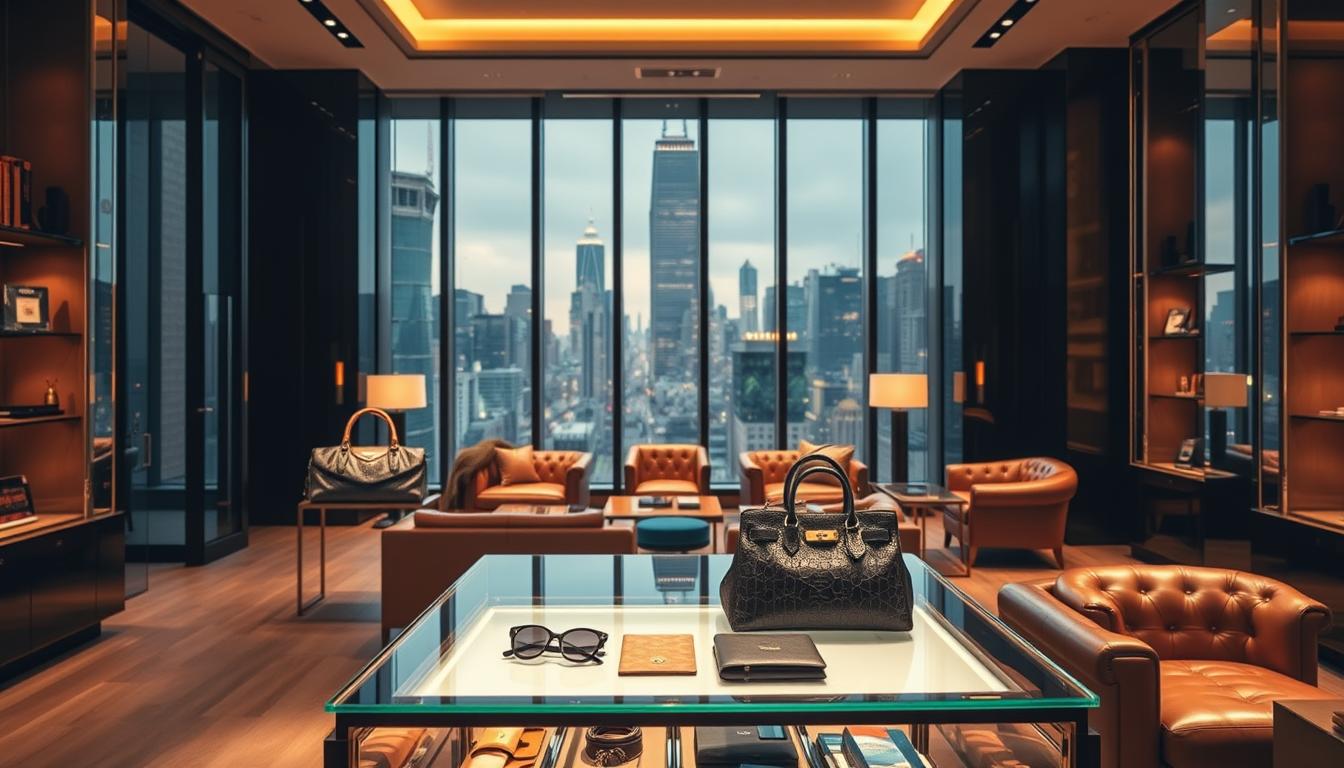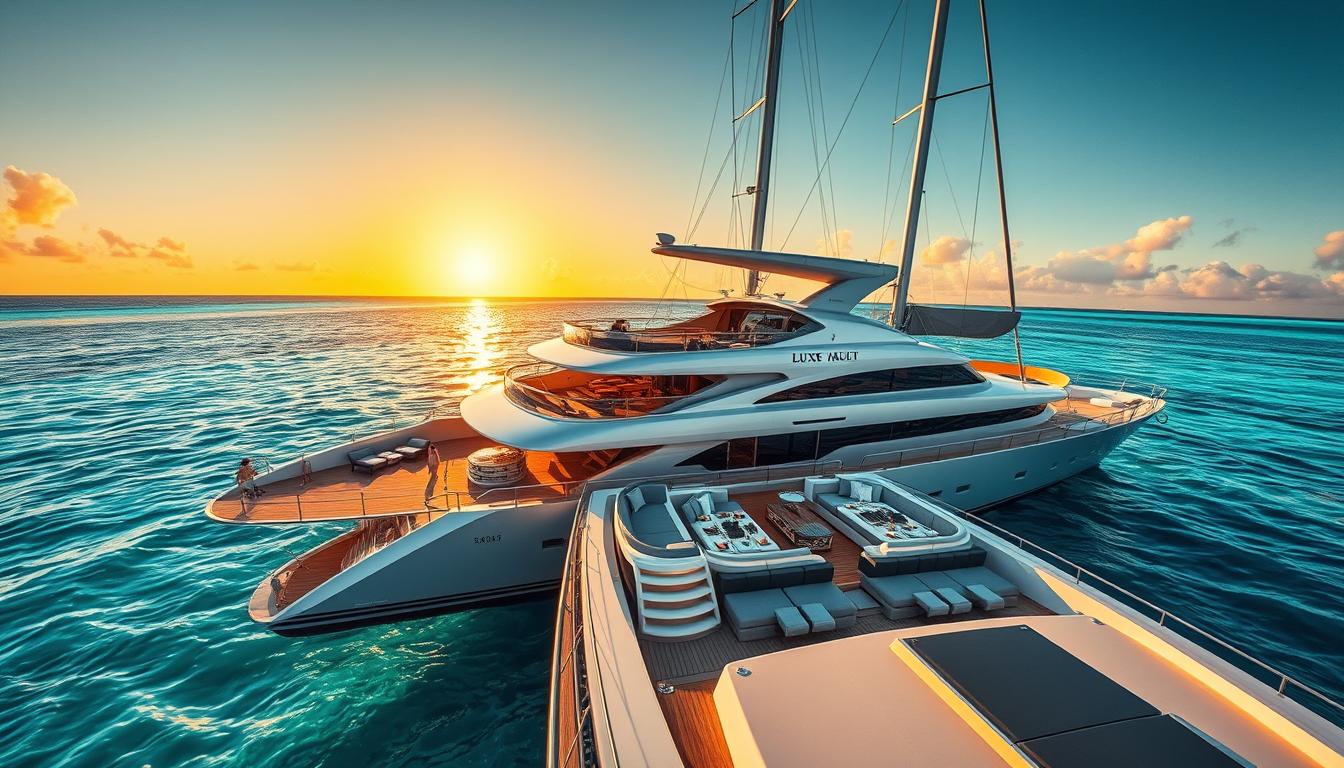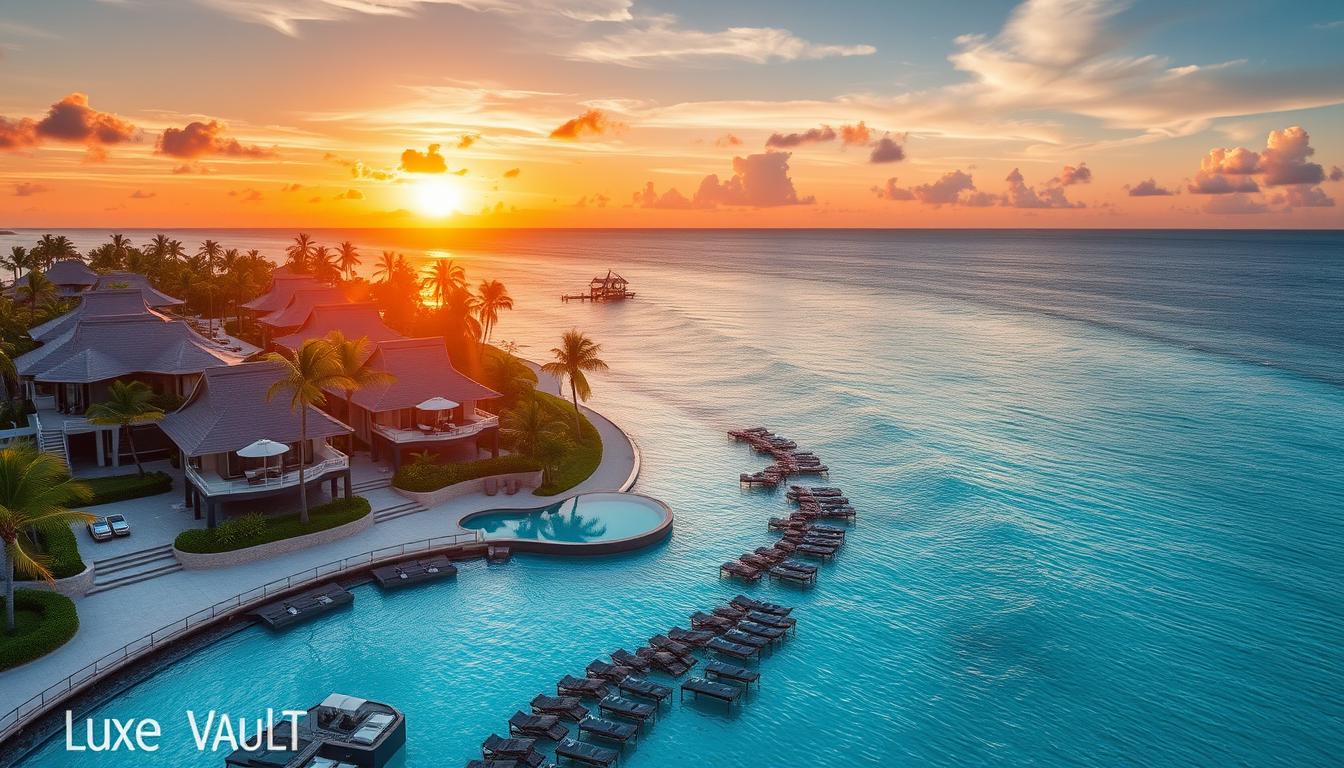Understanding what high-net-worth individuals want is key for luxury brands. You might ask, what makes these consumers different? It’s their unique values and expectations.
For the wealthy, luxury means more than just status. It’s about being exclusive, having high quality, and seeing craftsmanship. They look for experiences that match their personal tastes and are willing to spend more for it. Luxury marketers need to use content marketing and digital marketing to meet these desires.
Key Takeaways
- Luxury buyers value exclusivity and quality.
- Wealthy consumers seek tailored experiences.
- Content marketing is key for reaching luxury buyers.
- Digital marketing strategies help luxury brands connect with the wealthy.
- Knowing what luxury buyers want is essential for winning their loyalty.
Understanding High-End Shopping Behavior
Exploring luxury shopping reveals what drives high-end shoppers. The luxury market is complex. Affluent clients make choices based on many factors.
What Defines a High-End Shopper?
High-end shoppers have a lot of money to spend. But their choices go beyond just buying luxury goods. They seek exclusivity, quality, and prestige from premium brands.
Brands like Hermès and Louis Vuitton create limited editions. This creates a sense of exclusivity for their clients.
These shoppers value craftsmanship. They’re willing to pay more for products made with care. The premium brand selection process must understand these preferences.
Psychological Factors Influencing Luxury Purchases
Buying luxury goods is often driven by psychological factors. High-end shoppers want to show their status, express themselves, and feel satisfied. Luxury brands need to understand these drivers to market effectively.
Emotional connections with luxury brands are key. Brands that bond with their clients foster loyalty and repeat business.
The Role of Social Status in Buying Decisions
Social status is big in luxury shopping. Many shoppers want to show off their wealth with luxury goods. This affects their brand and product choices.
Luxury brands meet this desire with high-quality, unique products. Premium materials, designs, and limited editions make a brand seem prestigious.
Understanding high-end shopping behavior helps luxury brands target their marketing. This way, they can connect with their affluent clients better.
The Influence of Brand Reputation
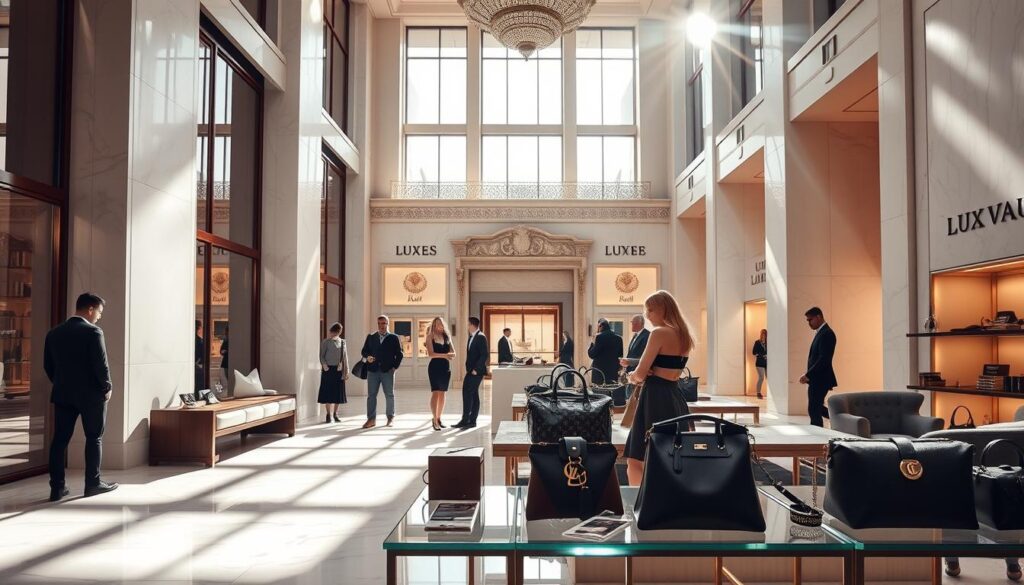
The world of high-end shopping is all about luxury brand reputation. People often choose brands with a rich history. For you, the brand’s story, history, and quality are key in making your choices.
Why Brand Loyalty Matters
Brand loyalty is big in the luxury market. You stick with brands you trust. This loyalty goes beyond just buying again; it’s about feeling connected to the brand. Luxury brands that build this bond keep your loyalty.
Several things help build brand loyalty. These include top-notch products, great customer service, and matching your values. For example, brands that support sustainability or local artisans appeal more to you.
How History Shapes Brand Perception
A luxury brand’s history greatly influences how you see it. Brands like Chanel and Rolex have deep histories that make them attractive. Their stories, heritage, and growth over time add value and authenticity.
A brand’s history shows tradition and commitment to quality. Knowing and valuing a brand’s history helps you see its unique value in high-end shopping.
The Importance of Exclusivity in Luxury Goods
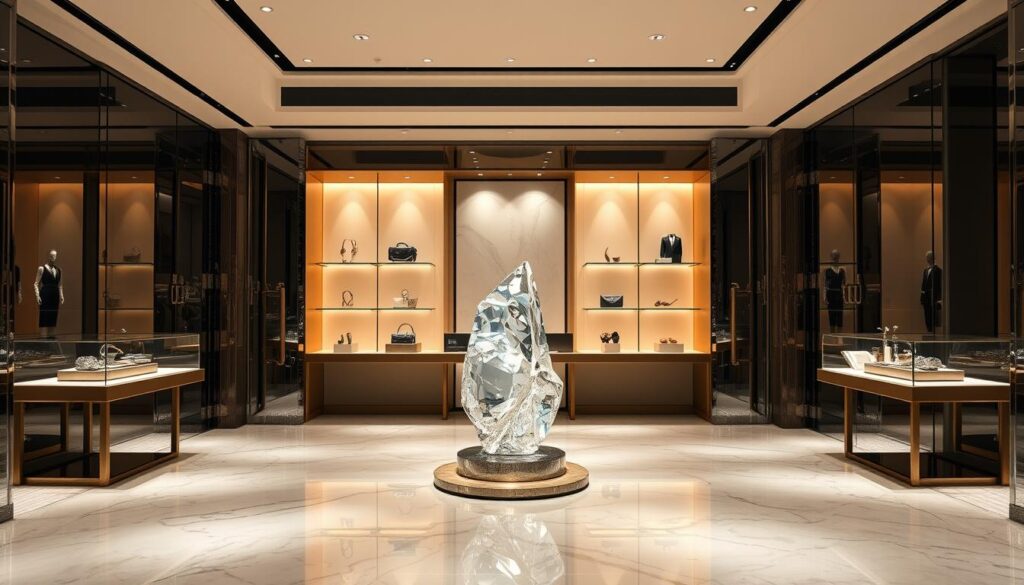
In the world of luxury goods, exclusivity is key. It shapes luxury buyer preferences and guides high-end consumer decision-making.
Luxury brands know that exclusivity is what keeps them appealing. They create a sense of scarcity by making limited editions. For example, Hermès’ Birkin bags are highly sought after because they’re made in small quantities.
Limited Editions and Scarcity
Limited editions play on the fear of missing out (FOMO). This fear makes consumers more likely to buy. Luxury brands announce limited production runs to create this urgency.
For instance, luxury watch brands release special editions that collectors eagerly await. This buzz around the brand boosts sales as people try to get their hands on these exclusive pieces.
Personalized Luxury Experiences
Personalized luxury experiences are also vital. Brands offer bespoke services, letting customers tailor products to their liking. This could be anything from monogramming on handbags to custom jewelry designs.
To learn more about luxury marketing, check out Sotheby’s Institute on luxury marketing. Personalized experiences increase customer satisfaction and loyalty. When brands meet individual needs, consumers feel a stronger connection to the brand.
Trends Affecting High-End Shopping Habits
The luxury shopping world is changing fast. This is due to new consumer wants and tech progress. Luxury brands are now adjusting to these changes to keep their high-end clients happy.
Sustainability in Luxury Fashion
Sustainability is now a big deal in luxury fashion. Rich shoppers want to buy things that are good for the planet. Brands like Stella McCartney and Gucci are using recycled stuff and cutting down on waste.
This move towards green fashion is more than a trend. It’s a big change that’s making the luxury world different. As people care more about the planet, luxury brands must keep finding new ways to be eco-friendly.
| Luxury Brand | Sustainable Practices |
|---|---|
| Stella McCartney | Uses recycled materials, reduces waste |
| Gucci | Implements eco-friendly production methods |
| Prada | Introduces sustainable materials in product lines |
The Rise of Online Luxury Shopping
Online luxury shopping is also changing how people shop. More people are buying high-end items online. This means luxury brands need to make their websites as good as their stores.
A report by Shopify says online luxury shopping will keep growing. Luxury brands are spending a lot on their websites to make sure they’re as fancy as their physical stores.
In the future, green fashion and online shopping will keep shaping luxury retail. Brands that keep up with these changes will do well with their rich customers.
The Role of Personal Relationships in Luxury Retail
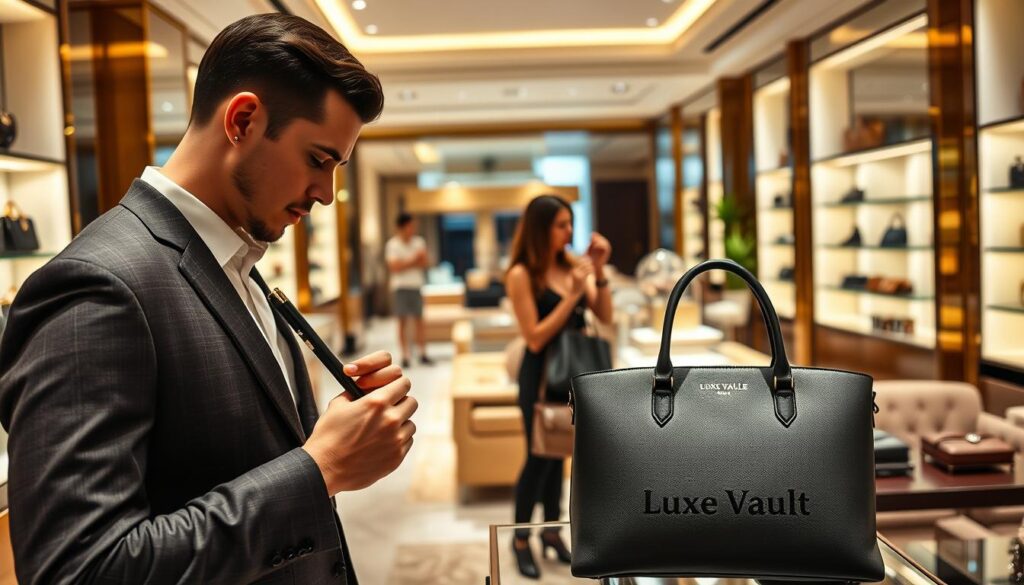
For high-end shoppers, luxury retail is more than just buying things. It’s about the personal connections they make. When you enter a luxury store, you’re looking for an experience that fits your style and needs.
Luxury brands know this and train their staff well. They aim to build trust and loyalty with their clients. As Jean-Pierre, a luxury retailer, said, “It’s not just about selling a product; it’s about understanding the client’s lifestyle and preferences.”
Building Trust with Luxury Retailers
Trust is key in luxury retail, just like in any relationship. Luxury retailers focus on personalized services to meet their clients’ needs. This can include tailored product recommendations and early access to new collections.
“The key to building a loyal client base is understanding their needs and preferences. It’s about creating a relationship that goes beyond just a transaction.”
Luxury retailers use their staff to offer a great shopping experience. By training them well, they can make shopping both informative and fun.
| Aspect | Luxury Retail | Mass Market |
|---|---|---|
| Personalization | Highly personalized service | Limited personalization |
| Product Knowledge | In-depth knowledge of products | Basic product information |
| Client Relationship | Long-term relationship building | Transactional focus |
The Impact of Personal Shopping Assistants
Personal shopping assistants are vital in luxury shopping. They offer services tailored to each client, making shopping more enjoyable and efficient.
Having a personal shopping assistant means getting personalized recommendations and exclusive access. This service not only improves your shopping experience but also strengthens your bond with the brand.
In conclusion, personal relationships are central to luxury retail. By focusing on trust and personalized services, luxury brands build a loyal client base. This base values the brand for its dedication to excellence and customer satisfaction.
The Digital Shift: E-commerce and Luxury
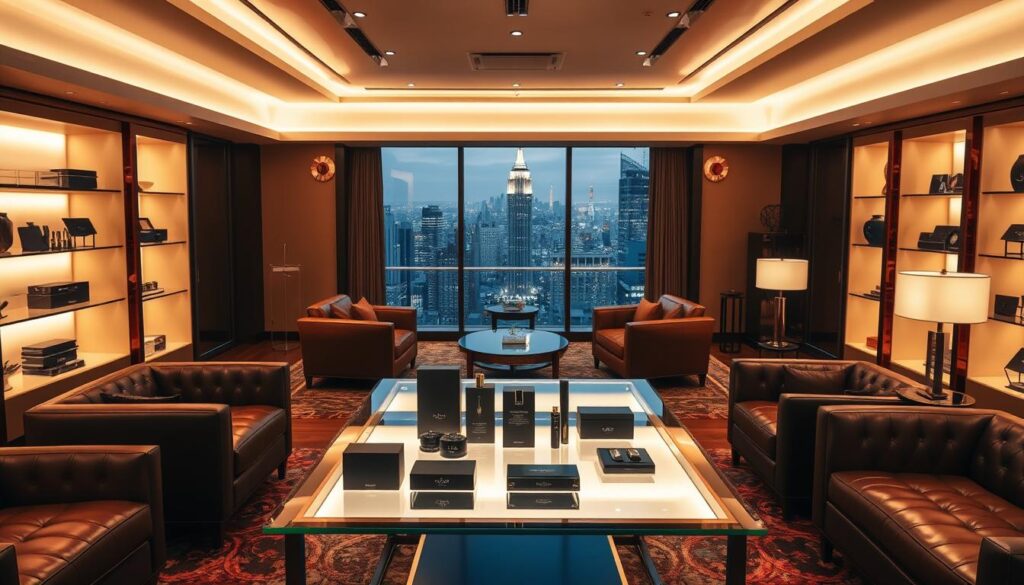
The digital shift in luxury retail is changing how the wealthy shop. Online platforms offer unparalleled convenience. You can shop from home and see more products than in stores.
Online luxury shopping platforms give personalized experiences. Many luxury brands offer virtual try-ons and tailored recommendations. A recent trend report says, “the future of luxury e-commerce is in immersive online experiences.”
“Luxury e-commerce is not just about selling products online; it’s about creating an experience that resonates with the luxury consumer’s lifestyle and values.”
Catering to the Wealthy Online
Luxury brands are making their online presence better for the wealthy. They offer exclusive online content, early access to new collections, and personalized service. For example, some brands have online shopping assistants who give styling advice and product recommendations.
- Personalized product recommendations based on shopping history
- Virtual try-ons and augmented reality experiences
- Exclusive online content and early access to new collections
- Dedicated online shopping assistants for personalized service
A Seamless Online Experience
A seamless online experience is key for luxury e-commerce. This means a user-friendly website, fast loading times, and a secure checkout. Experts say, “a smooth online shopping experience is key to retaining high-end customers and encouraging repeat business.” Luxury brands are investing in digital marketing to improve the online shopping experience.
By focusing on these areas, luxury brands can meet the high expectations of their affluent clients. As the luxury market evolves, the importance of a well-crafted digital presence will grow.
The Significance of Craftsmanship and Quality
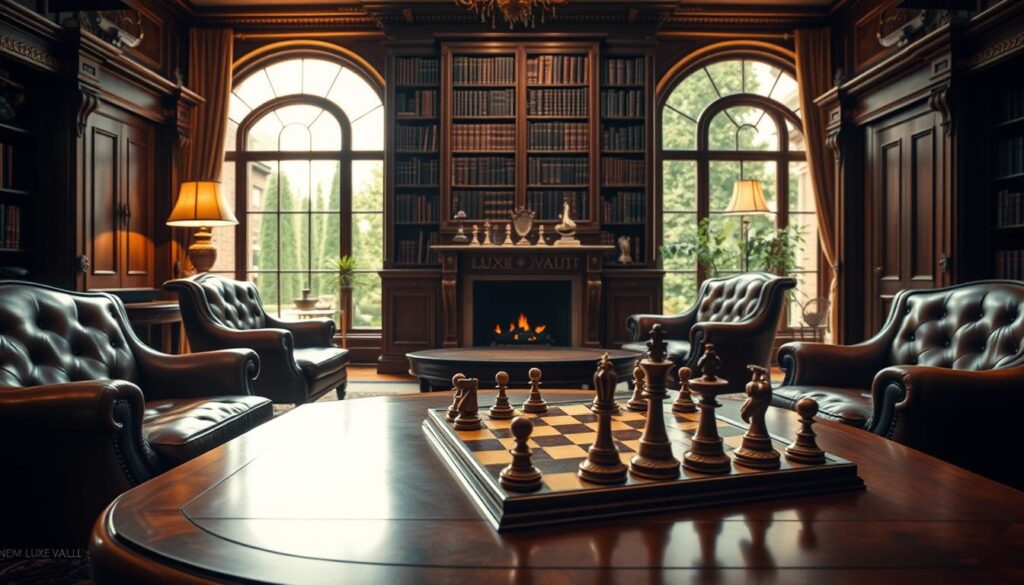
Luxury is more than just a brand name. It’s about the exceptional craftsmanship and quality of the product. High-end consumers look for artistry, attention to detail, and a human touch in luxury goods.
As a luxury buyer, you might be drawn to products that show off superior craftsmanship. This could be a handcrafted watch, a custom-made suit, or exclusive jewelry. These items are unique and highly valued by connoisseurs.
What to Look for in High-End Products
When checking out high-end products, quality is key. It’s not just about the materials but also the skill and craftsmanship. Here are some important things to consider:
- The quality of materials and their durability
- The level of craftsmanship and attention to detail
- The uniqueness and exclusivity of the product
- The brand’s heritage and reputation for quality
Luxury expert Fernand Petersen says, “The value of luxury is in evoking emotions and belonging to a select group. Craftsmanship adds a personal touch that mass-produced items lack.”
“Luxury is not just about the product; it’s about the experience, the craftsmanship, and the story behind it.”
Comparing Mass Production to Artisan Goods
Mass-produced goods and artisan goods are very different. Mass production offers consistency and affordability but lacks soul. Artisan goods, made in small quantities, receive detailed attention.
| Characteristics | Mass Production | Artisan Goods |
|---|---|---|
| Production Method | Automated machinery | Handcrafted by skilled artisans |
| Uniqueness | Identical products | Unique or limited edition |
| Craftsmanship | Limited human touch | High level of craftsmanship |
In conclusion, for luxury buyers, craftsmanship and quality are essential. Whether it’s a bespoke item or a high-end brand piece, the value is in the quality, detail, and human touch that makes each product unique.
Experiences Over Products: A Luxury Trend
The luxury market is changing, with a big shift towards experiential luxury. People want unique and memorable experiences, not just luxury goods.
Why Wealthy Shoppers Prefer Experiences
Wealthy shoppers now want experiences that connect and fulfill them deeply. They crave exclusivity and personal interactions. Luxury brands are responding by creating private events, personalized shopping, and bespoke travel.
“The most important thing for our clients is not just the product, but the experience surrounding it,” says a luxury brand executive. “We’re seeing a growing demand for unique experiences that create lifelong memories.”
How High-End Brands Are Adapting
High-end brands are now focusing on experiential luxury. They offer:
- Exclusive events and parties
- Personalized shopping experiences
- Bespoke travel packages
- Private workshops and masterclasses
To show the trend’s impact, let’s look at some data. The table below shows the growing demand for experiential luxury:
| Demographic | Preference for Experiential Luxury | Growth Rate |
|---|---|---|
| Millennials | 75% | 15% |
| Gen X | 60% | 10% |
| Baby Boomers | 45% | 5% |
The table shows a clear trend towards experiential luxury, with millennials leading. High-end brands are adapting to meet these changing demands.
By focusing on experiences, luxury brands can build deeper connections with clients. This fosters loyalty and drives growth. As the luxury market evolves, experiential luxury will remain a key trend.
The Power of Influencers and Celebrity Endorsements
Influencers and celebrities can greatly affect a luxury brand’s success. Their support can make a product more appealing to high-end shoppers.
Influencer Selection for Luxury Brands
Luxury brands pick influencers who share their values and attract their target audience. For example, Gucci teamed up with Harry Styles. This move drew in younger fans.
The Impact of Celebrity Endorsements
Celebrity endorsements are vital in shaping how people see luxury brands. When a star like Rihanna works with Fenty, it boosts the brand’s visibility. It also shapes what people want to buy.
Luxury brands will keep using influencers and celebrities to reach their goals. This strategy is key in the fast-changing world of luxury shopping.
